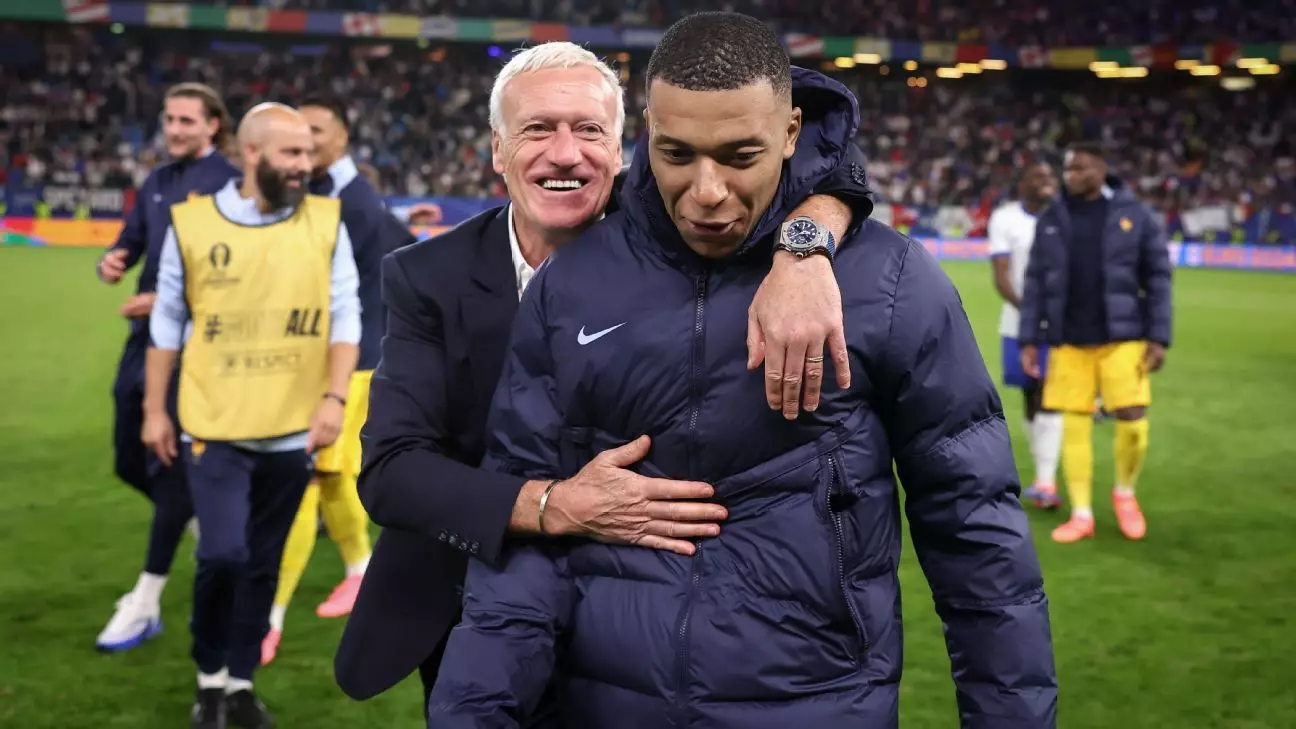Kylian Mbappé’s anticipated return to the France national football team has generated notable excitement and speculation among fans and analysts alike. Head coach Didier Deschamps confirmed that the 26-year-old striker will be part of the squad for the Nations League quarterfinal clashes against Croatia in March. This news marks a significant development, as Mbappé, a key player with 86 caps and 41 goals to his name for Les Bleus, was absent from the previous international fixtures. Deschamps emphasized the player’s commitment to the national team despite his recent challenges.
Mbappé’s absence from the national squad sent ripples through the football community. Many speculated that the young star’s shift to Real Madrid in July led to a transitional phase that warranted his omission from previous line-ups. Deschamps shed light on this situation, clarifying that there were valid reasons for not including Mbappé, relating both to his physical condition after a challenging six months at Paris Saint-Germain and the emotional toll of his recent experiences in international competitions, including a broken nose at the UEFA Euro. The coach’s acknowledgment of these challenges humanizes the athlete, showing that even top-tier players are not immune to the pressures of their careers.
Mental and Physical Readiness
As Mbappé prepares for his return, both his mental and physical readiness are critical. Deschamps has noted the importance of Mbappé’s well-being, suggesting that the striker is now back to full fitness, indicating the potential for a strong performance for France. However, the congested football calendar remains a concern, amplifying the risk of injuries as players like Mbappé juggle club and international commitments. Despite these challenges, Mbappé’s commitment to representing France showcases his dedication and passion for the game, which resonates well with fans and teammates alike.
The question of leadership within the national team is a significant one, especially considering Mbappé’s previous absences. Deschamps assured the media that these absences do not diminish Mbappé’s role as a leader within the team. The coach indicated that there are ongoing discussions regarding roles and responsibilities, particularly about the captaincy. As one of the most talented players in the world, Mbappé’s influence transcends mere statistics; his mindset and approach to the game can inspire his peers, potentially leading to greater cohesion and success for the team.
As discussions surrounding Deschamps’ future unfold—he is set to depart after the 2026 World Cup—the mention of Zinedine Zidane as a potential successor underscores the transformative phase French football is entering. Zidane’s pedigree and familiarity with the players could pave the way for a new chapter. Ultimately, as Mbappé reenters the national squad, his journey symbolizes not only personal resilience but also the shared aspirations of a nation eager for glory on the international stage.
Kylian Mbappé’s return is more than just a reintegration into the squad; it signifies a pivotal moment that could shape the trajectory of the French national team in the coming years. The blend of his talent, leadership potential, and the evolving coaching landscape could spell a promising future for French football.

